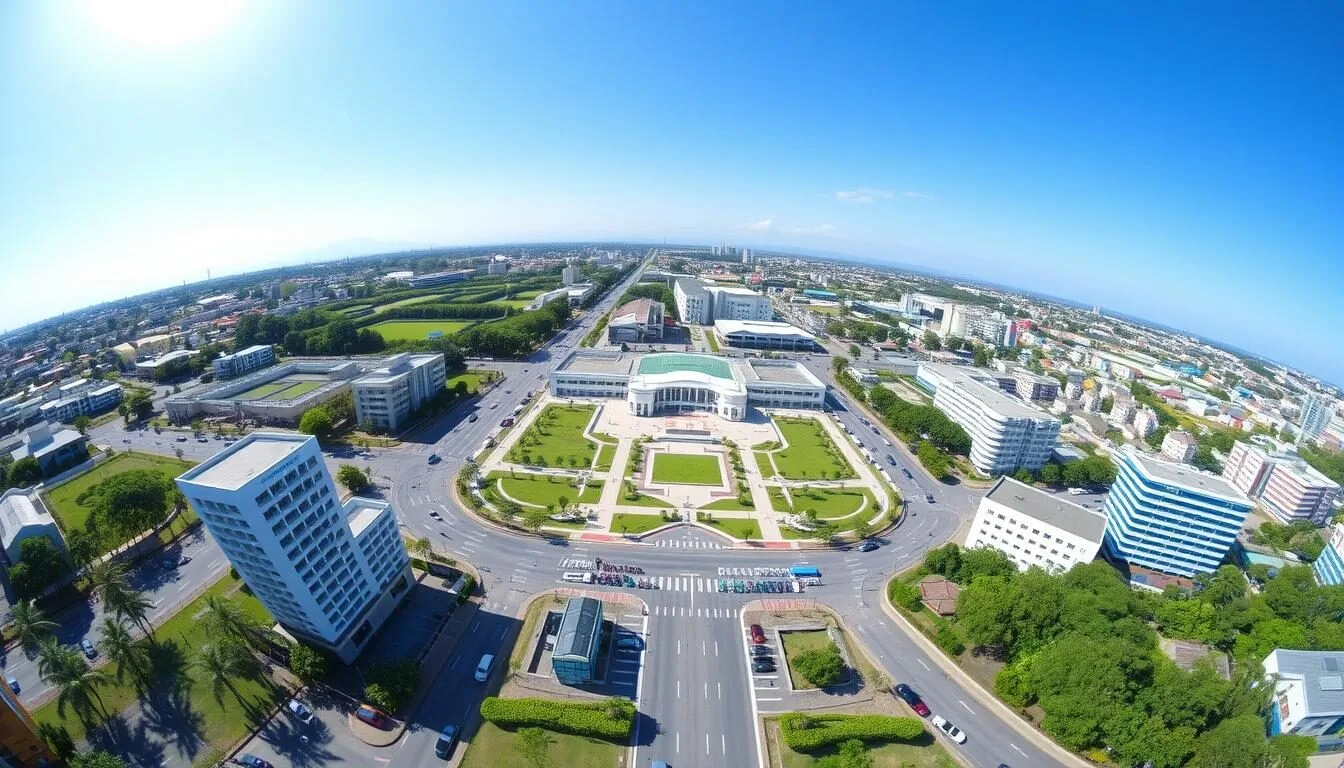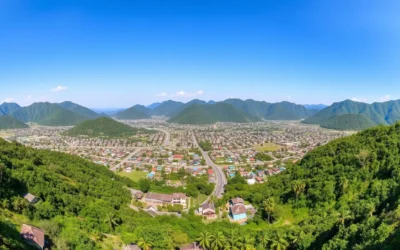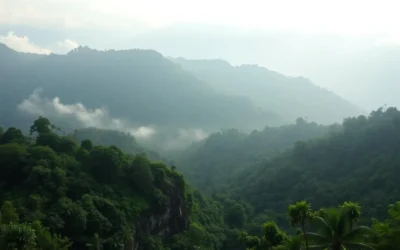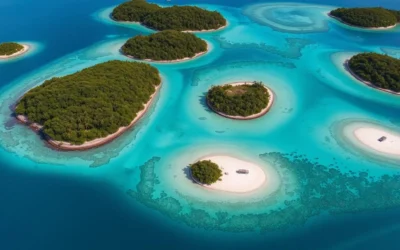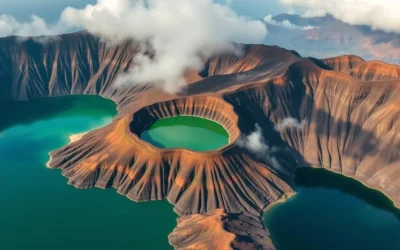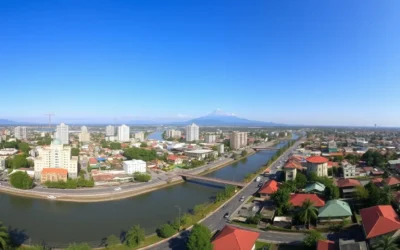Did you know that Binjai is home to one of Indonesia’s most celebrated rambutan varieties? This small city in North Sumatra produces over 2,400 tons of this sweet, hairy fruit annually, making it a true fruit lover’s paradise. Often overlooked by travelers rushing between Medan and Lake Toba, Binjai offers a genuine slice of Sumatran life with its rich cultural tapestry woven from Javanese, Batak, Chinese, Indian, and Malay influences.
Getting There & Planning Your Journey
Binjai is conveniently located just 22 km west of Medan, North Sumatra’s capital city. Most travelers arrive via Kuala Namu International Airport in Medan and then make their way to Binjai.
By Air
The nearest airport is Kuala Namu International Airport in Medan, which serves domestic and international flights. From there, you’ll need to travel to Binjai by land.
Find the best flight deals to Medan for your Binjai adventure
By Land
From Medan, you have several options to reach Binjai:
- Train: Take the Sri Lelawangsa commuter train from Medan to Binjai station
- Bus: Regular Trans Binjai buses connect Medan and Binjai
- Car: The Sumatra Highway makes for an easy 30-40 minute drive
- Taxi/Ride-share: Available from Medan or directly from the airport
Explore Binjai with the freedom of your own vehicle
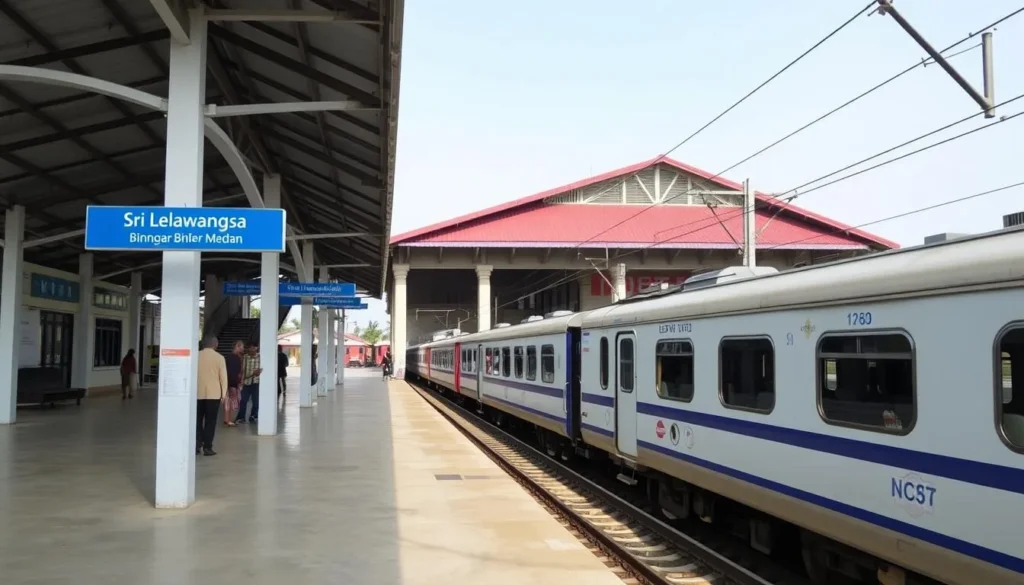
Best Time to Visit & Weather Tips
Binjai has a tropical rainforest climate with consistent rainfall throughout the year. However, some months offer more favorable conditions for travelers.
Dry Season (June-August)
The relatively drier months with slightly less rainfall. Temperatures average around 32°C (90°F) during the day and 22°C (71°F) at night.
Shoulder Season (March-May)
Moderate rainfall with temperatures reaching 32°C (90°F). Good time to visit if you don’t mind occasional showers.
Wet Season (September-February)
Heaviest rainfall, especially October-December. Still visitable, but bring rain gear and expect some outdoor activities to be affected.
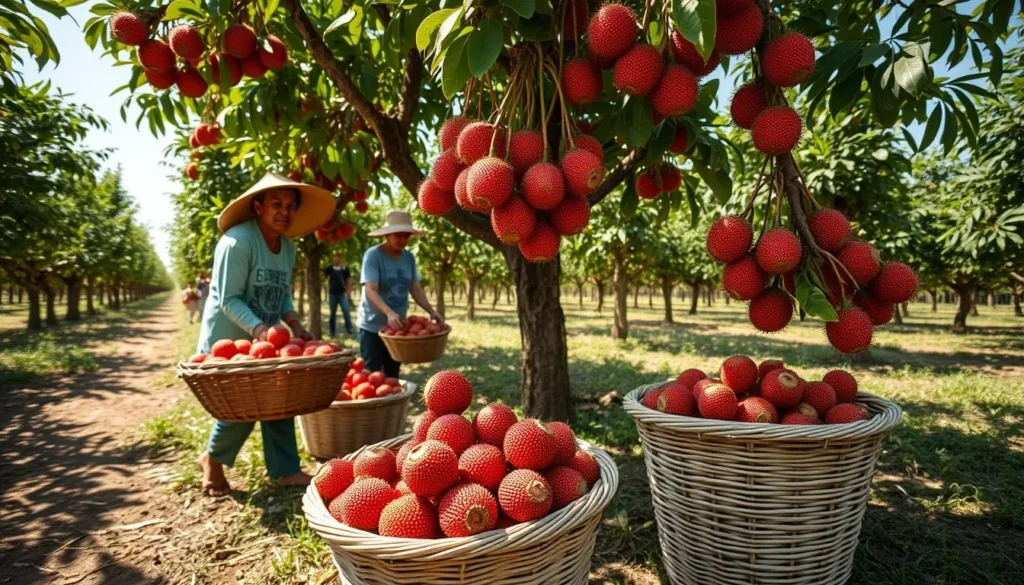
Packing Tips for Binjai
- Lightweight, breathable clothing for the humid climate
- Rain jacket or umbrella (regardless of season)
- Sun protection (hat, sunglasses, sunscreen)
- Modest clothing for visiting religious sites
- Comfortable walking shoes for exploring
Getting Around Locally
Binjai is a relatively compact city, making it fairly easy to navigate. Here are the best ways to get around:
Public Transportation
- Becak: Three-wheeled motorized vehicles, the most common form of local transport
- Angkot: Small minibuses that follow set routes around the city
- Trans Binjai: The city’s bus line that connects major areas
Private Options
- Rental Cars: Available for those who prefer independence
- Ride-sharing Apps: Available in the area for convenient point-to-point travel
- Walking: Feasible for exploring the downtown area
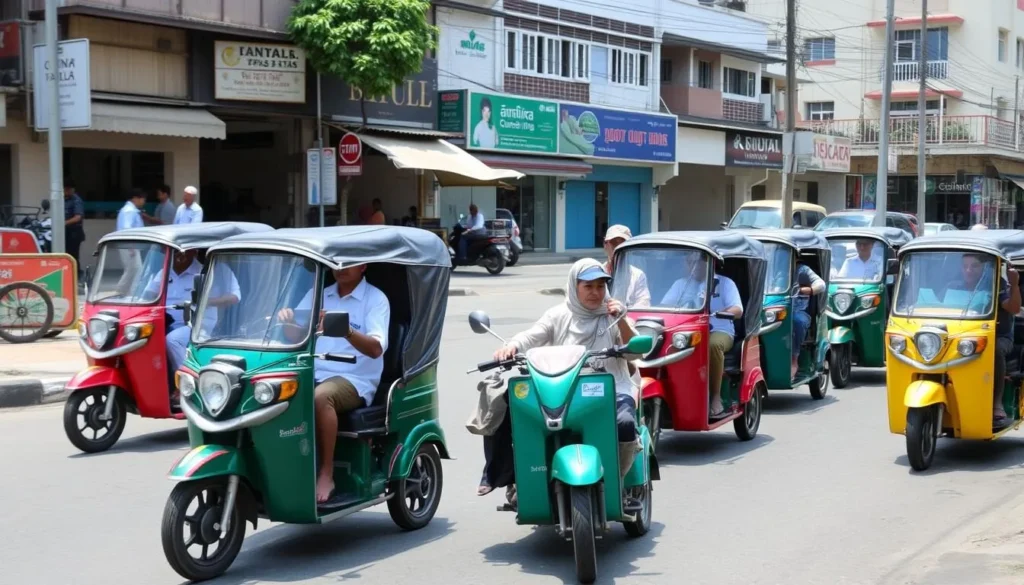
Transportation Tip
Always agree on the fare before getting into a becak to avoid any misunderstandings. For longer journeys between Binjai and nearby attractions, consider hiring a driver for the day for convenience and better rates.
Where to Stay in Binjai
While Binjai has limited accommodation options compared to nearby Medan, there are still several places to stay that cater to different budgets and preferences.
Budget Options
- RedDoorz Syariah near RSU Sylvani Binjai: Clean, affordable rooms with good ratings
- New Era Family Homestay: Budget-friendly option with a convenient location
- Hotel O Home Stay Kembar Syariah: Simple accommodations with basic amenities
Mid-Range Hotels
- Hotel Mulia Tiza: Comfortable rooms with additional amenities
- New Garuda Hotel Binjai: Reliable option with decent facilities
- Townhouse Oak Syariah Hotel: Clean rooms with good service
Nearby Luxury Options
For luxury accommodations, consider staying in nearby Medan (22km away) with options like:
- JW Marriott Hotel Medan: 5-star luxury with excellent amenities
- Cambridge Hotel Medan: Modern rooms with rooftop pool
- Santika Premiere Dyandra Hotel: Upscale option with convention center
Find Your Perfect Stay in Binjai
Browse accommodations in and around Binjai to suit your budget and preferences
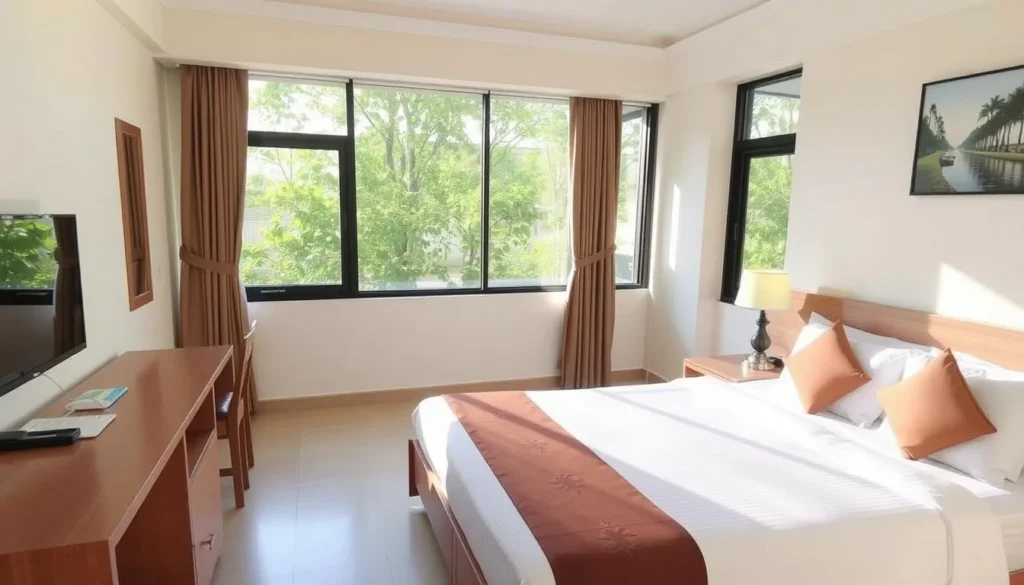
Dining & Local Cuisine in Binjai
Binjai’s culinary scene reflects its diverse cultural influences, offering a delightful mix of Malay, Batak, Javanese, Chinese, and Indian flavors. The city is particularly famous for its fresh fruits, especially rambutan.
Must-Try Local Dishes
- Mie Bangka: A popular noodle dish with a rich broth and various toppings
- Soto Medan: Aromatic soup with coconut milk, chicken, and bean sprouts
- Bika Ambon: Sweet, spongy cake with a distinctive honeycomb texture
- Durian Pancake: Sweet treat featuring the region’s famous durian fruit
- Fresh Rambutan: Binjai’s claim to fame, don’t miss trying the local variety
Where to Eat
- Bangkatan Food Court: The largest food court in Binjai, specializing in Chinese and Indonesian cuisine
- Traditional Markets: Visit Tavip, Kebun Lada, Brahrang, or Rambung markets for authentic local food
- General Sudirman Street: Main shopping avenue with numerous dining options
- Ahmad Yani Street: Another popular area for restaurants and cafes
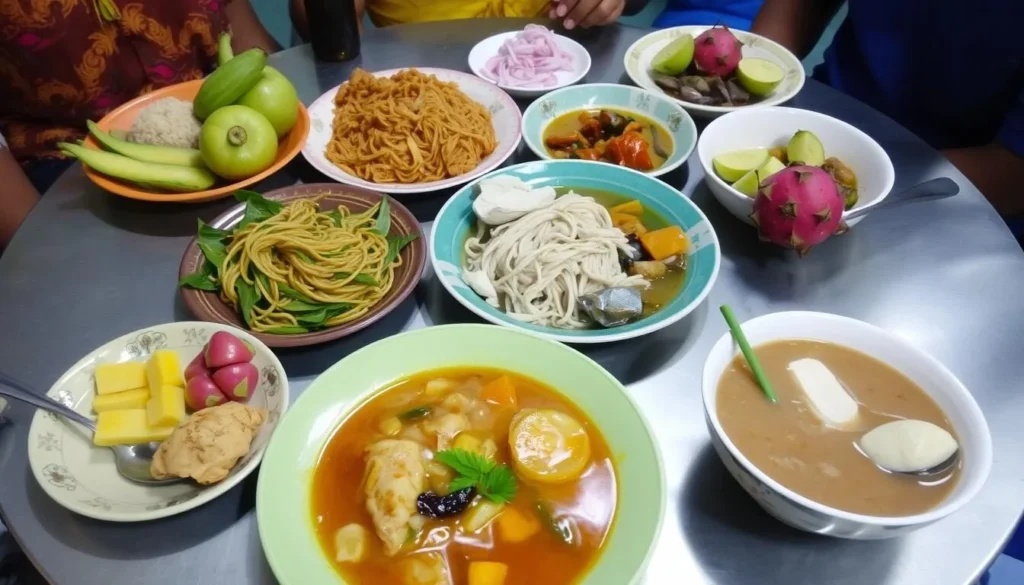
“The true flavor of Binjai can be found in its markets and small warungs (food stalls), where recipes have been passed down through generations. Don’t be afraid to try something new – the best culinary experiences often come from the most unassuming places.”
Attractions, Sightseeing & Activities in Binjai
While Binjai may not be as well-known as other Indonesian destinations, it offers several interesting attractions that provide insight into the local culture and history.
Historical Sites
- 1945 Struggle Monument: An important icon commemorating Indonesia’s independence struggle
- Amir Hamzah’s House: Historical residence of a notable figure in Indonesian literature
- Military Cemetery: A nationally important site honoring fallen soldiers
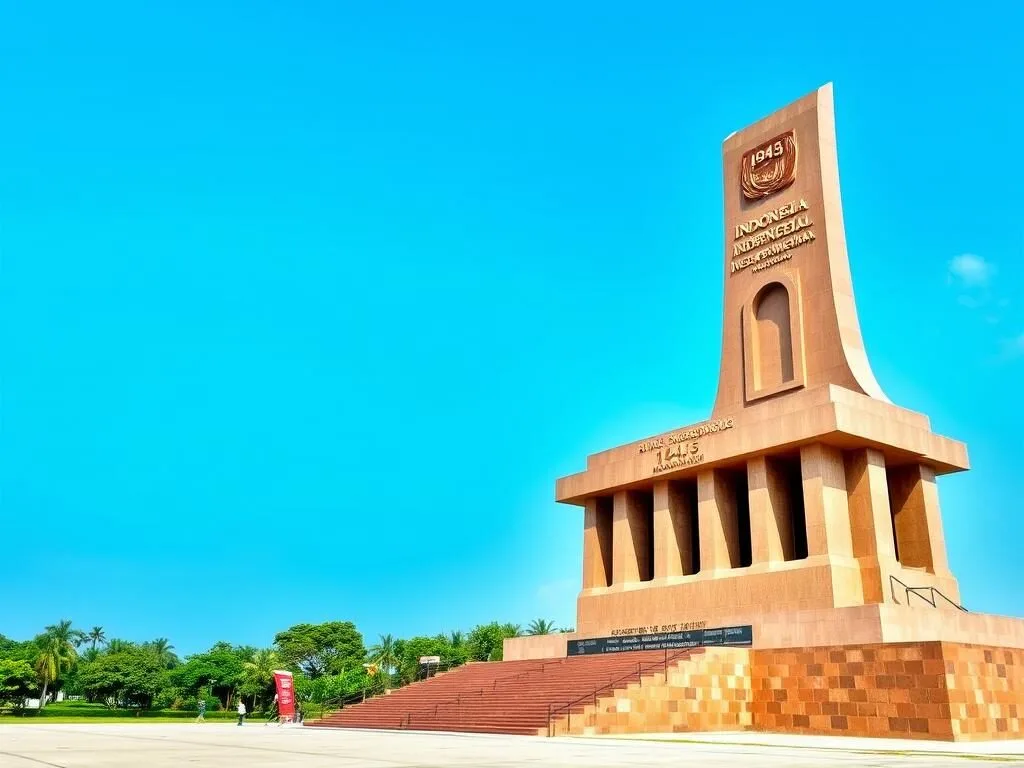
Religious Sites
- GBKP Simpang Awas Binjai: A prominent church with distinctive architecture
- Kapten Machmud Ismail Mosque: The largest mosque in Binjai
- Hindu Temple on Ahmad Yani Street: The city’s main Hindu place of worship
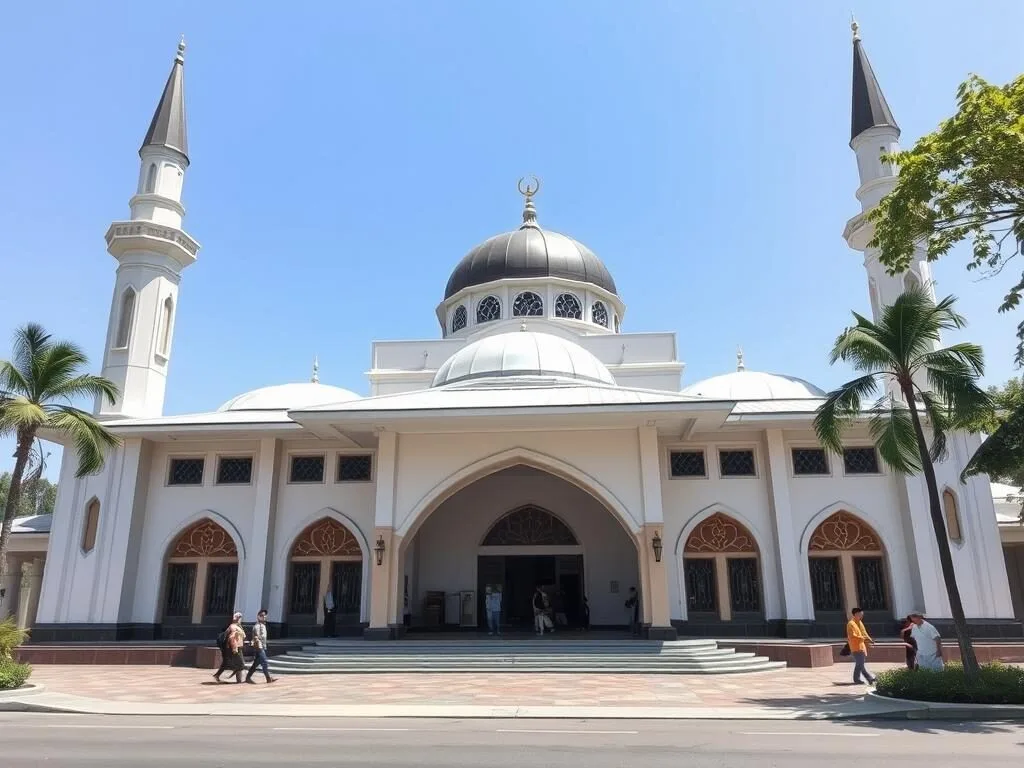
Urban Spaces
- Lapangan Merdeka (Freedom Square): Central civic space in front of the town hall
- Pendopo Umar Baki: Building used for various official and unofficial functions
- Welcome Gate to Binjai: Iconic entrance to the city
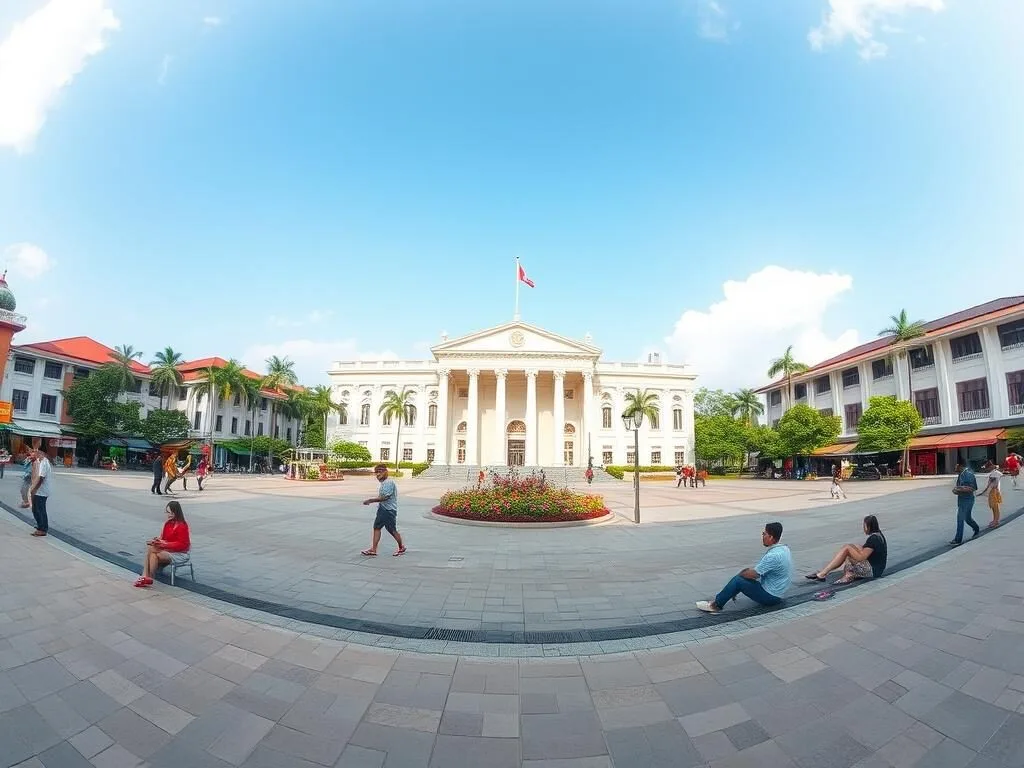
Explore Binjai’s Attractions
Discover guided tours and activities in and around Binjai
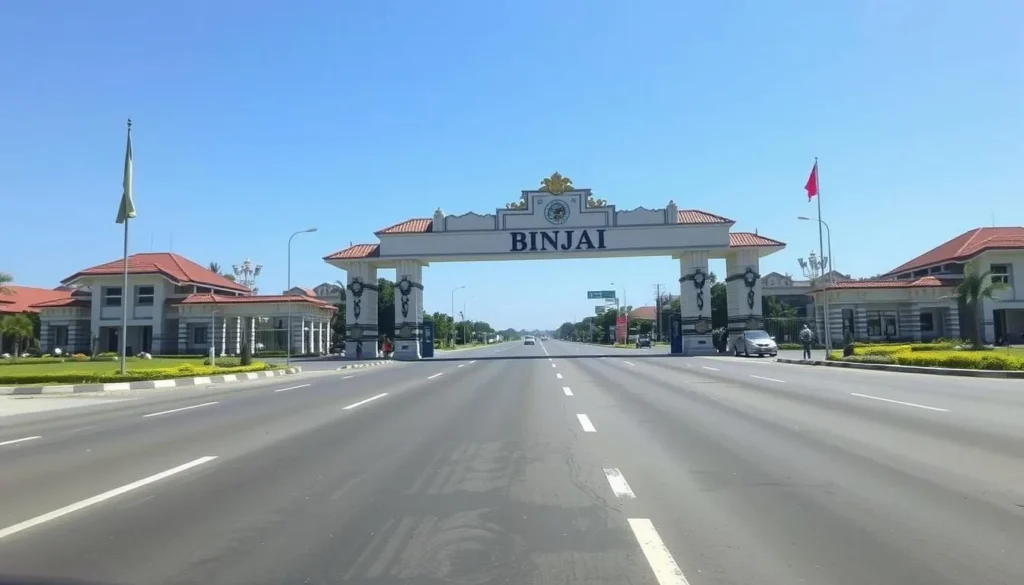
Museums, Cultural Spots & Festivals
Binjai’s cultural scene is shaped by its diverse ethnic makeup, with Javanese, Batak, Chinese, Indian, and Malay influences creating a rich tapestry of traditions and celebrations.
Cultural Venues
While Binjai doesn’t have major museums, cultural experiences can be found at:
- Traditional Markets: Experience local life and culture at Binjai’s four traditional markets
- Town Hall Area: Center of civic activities and cultural events
- Local Schools and Universities: Occasionally host cultural performances and exhibitions
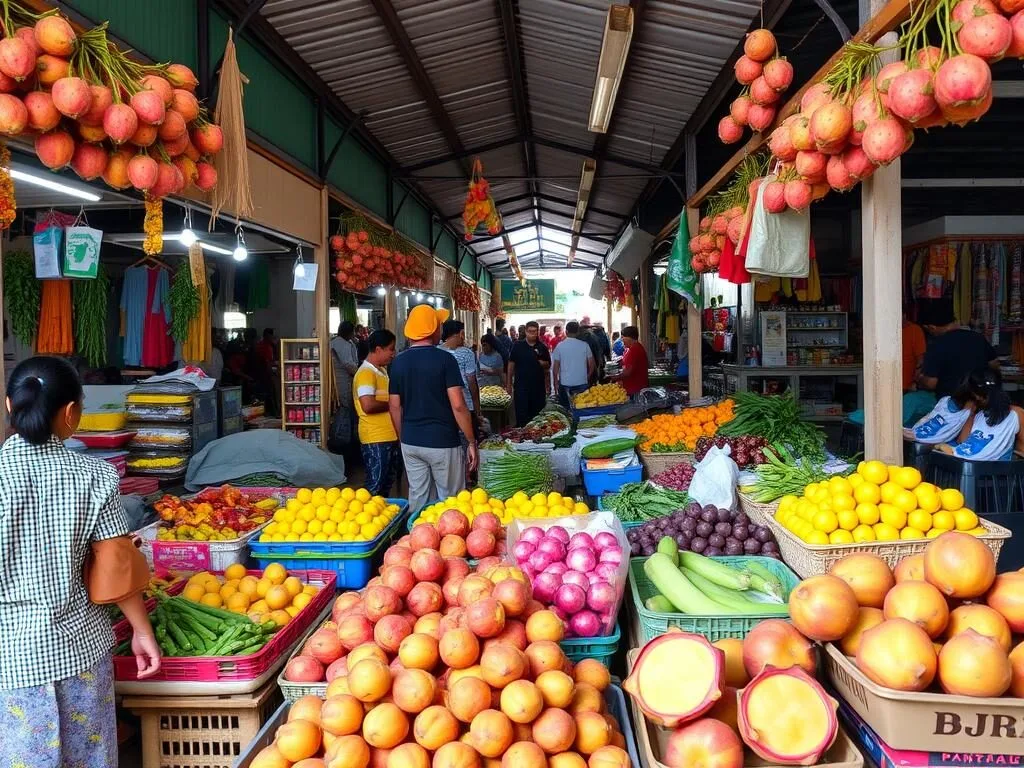
Festivals & Events
Throughout the year, Binjai celebrates various cultural and religious festivals:
- Rambutan Festival: Celebrating the city’s famous fruit
- Independence Day (August 17): Citywide celebrations and parades
- Eid al-Fitr: Major celebration for the Muslim population
- Chinese New Year: Celebrated by the Chinese community
- Batak Cultural Events: Traditional ceremonies and performances
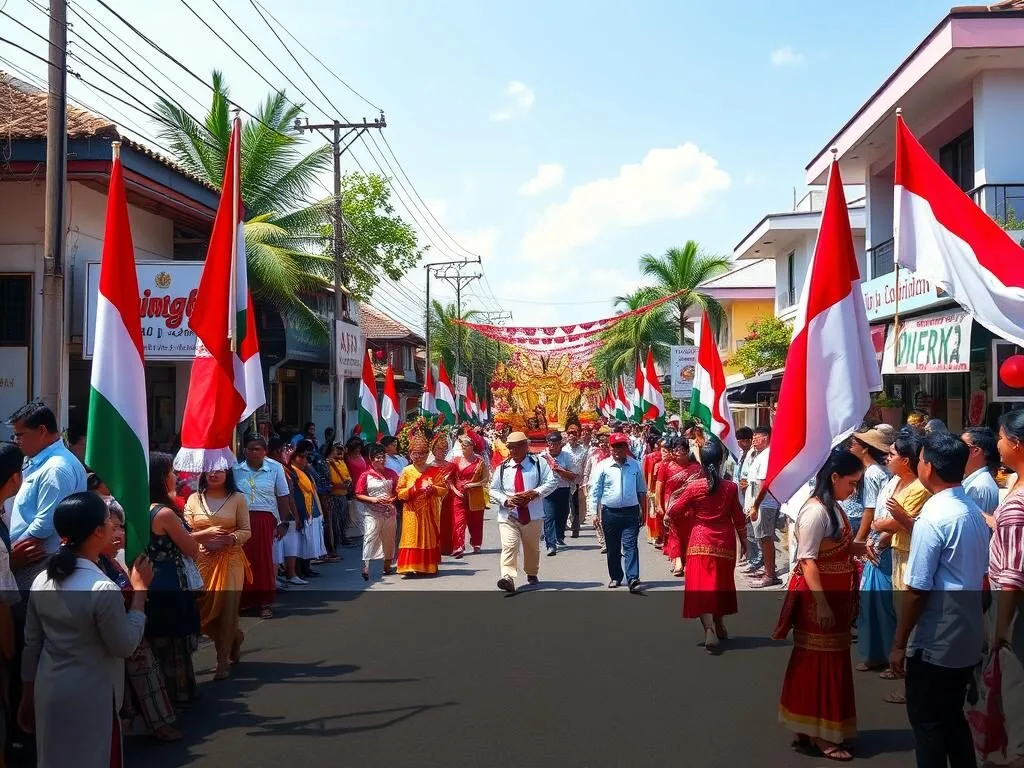
“Binjai’s charm lies in its cultural diversity. In one day, you can experience Malay traditions, taste Chinese cuisine, hear Batak music, and see Javanese influences in architecture and art. It’s a microcosm of Indonesia’s cultural richness.”
Sports, Nature & Outdoor Experiences
While Binjai itself is primarily urban, its location provides access to several natural attractions and outdoor activities in the surrounding area.
Within Binjai
- City Parks: Several green spaces for relaxation and recreation
- Jogging Tracks: Popular among locals for morning exercise
- Fruit Orchards: Visit rambutan plantations when in season
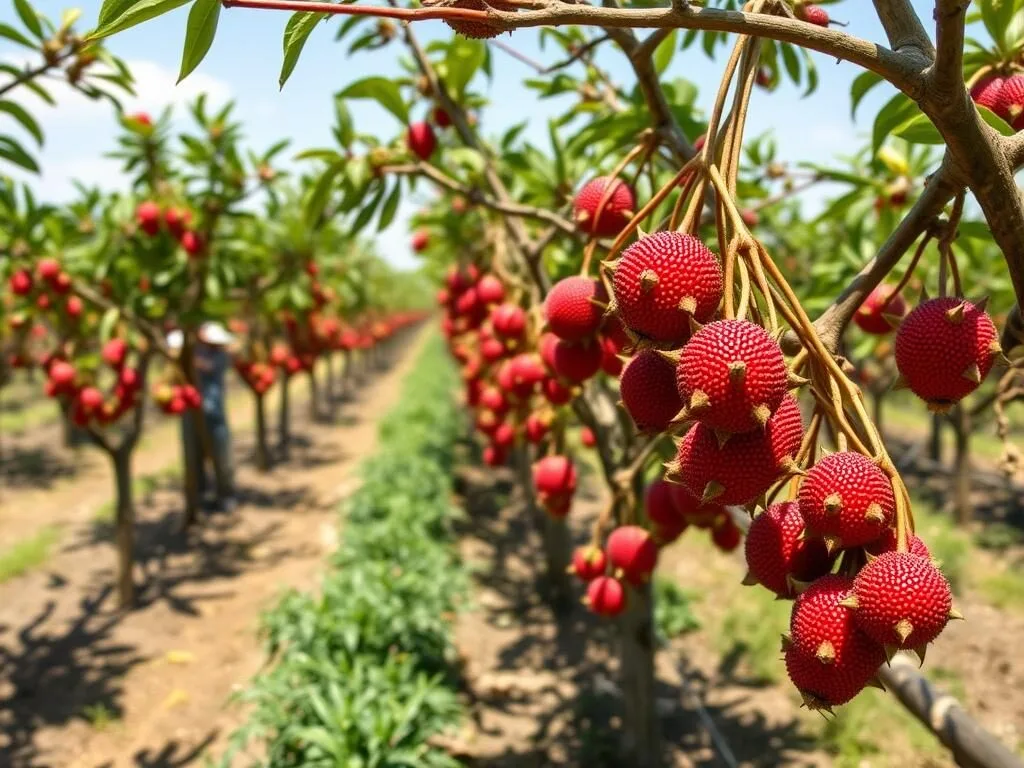
Day Trips
- Bukit Lawang: Famous orangutan conservation site (68km west)
- Gunung Leuser National Park: UNESCO World Heritage site with incredible biodiversity
- Mencirim River: Opportunities for swimming and picnicking
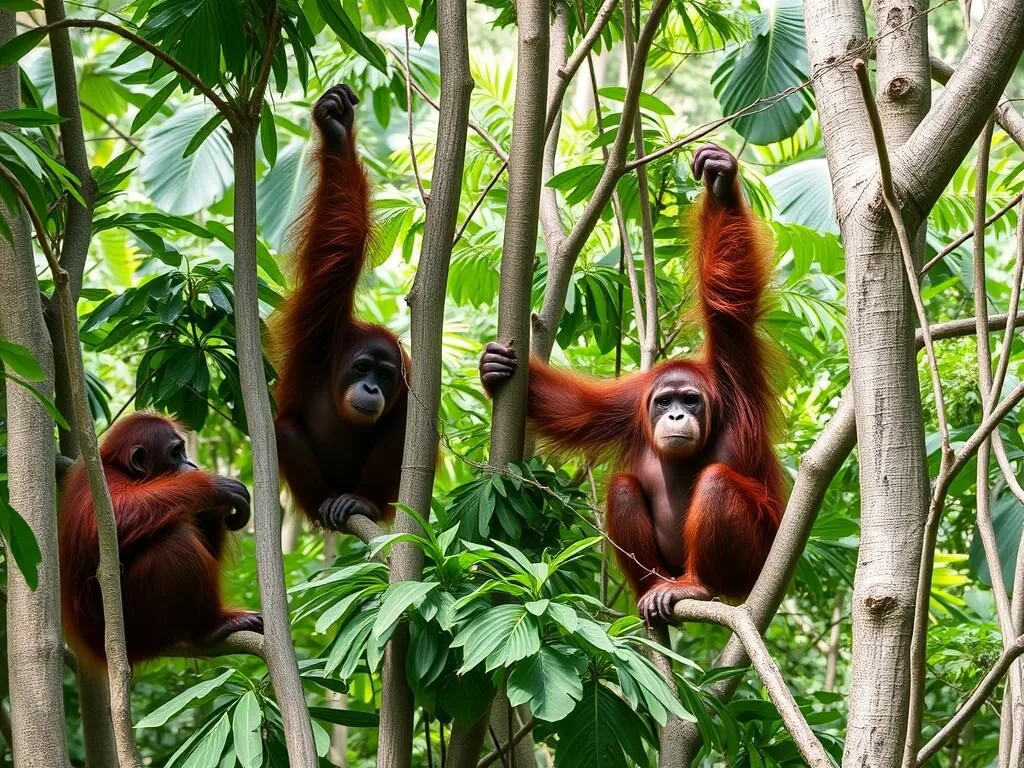
Adventure Activities
- Jungle Trekking: Guided hikes in nearby forests
- River Tubing: Available on nearby rivers
- Bird Watching: The region is home to diverse bird species
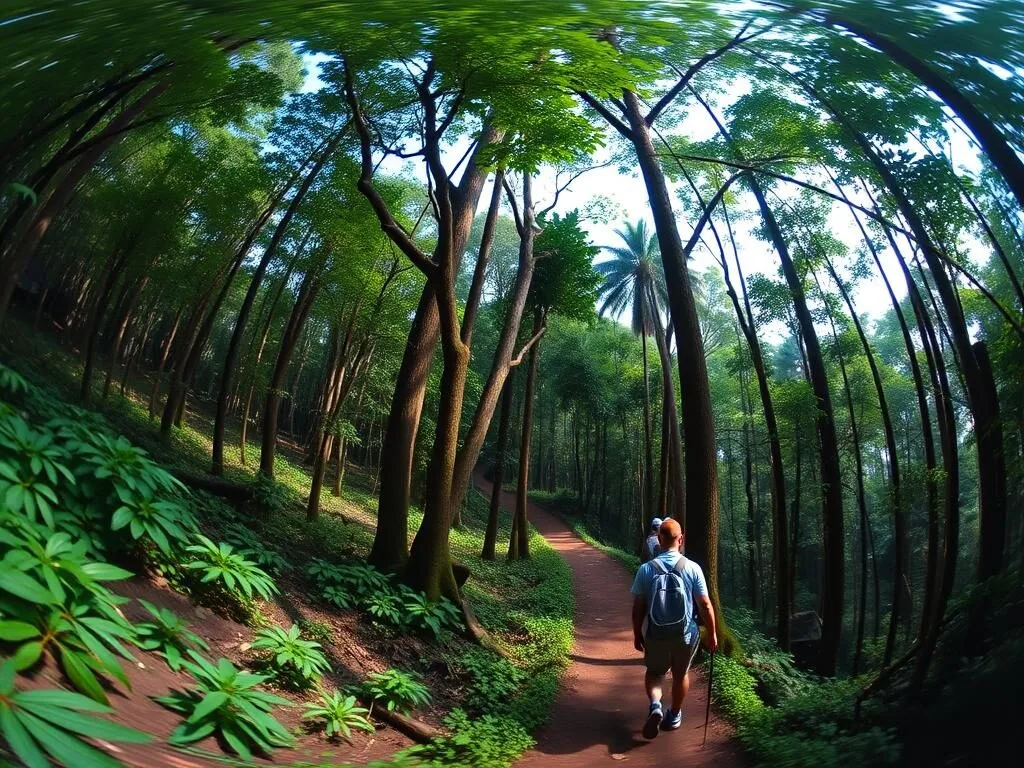
Adventure Awaits
Book guided tours to Bukit Lawang and other natural attractions near Binjai
Safety, Etiquette & Local Customs
Understanding local customs and practicing appropriate etiquette will enhance your experience in Binjai and help you connect with the local community.
Safety Tips
- Binjai is generally safe, but exercise normal precautions as you would in any city
- Keep valuables secure and be aware of your surroundings
- Carry a copy of your passport and keep the original in a safe place
- Have the contact information for your country’s embassy or consulate
- Purchase travel insurance that covers medical emergencies
Medical Facilities
Binjai has three major hospitals: Korem Hospital, Binjai Public Hospital, and PTP IX Hospital. For serious medical issues, larger facilities are available in nearby Medan.
Cultural Etiquette
- Dress modestly, especially when visiting religious sites
- Remove shoes before entering homes, mosques, and some businesses
- Use your right hand for eating, giving, and receiving
- Respect religious practices, particularly during prayer times and holy months
- Ask permission before photographing people, especially in rural areas
- Greet people with a slight bow and a smile
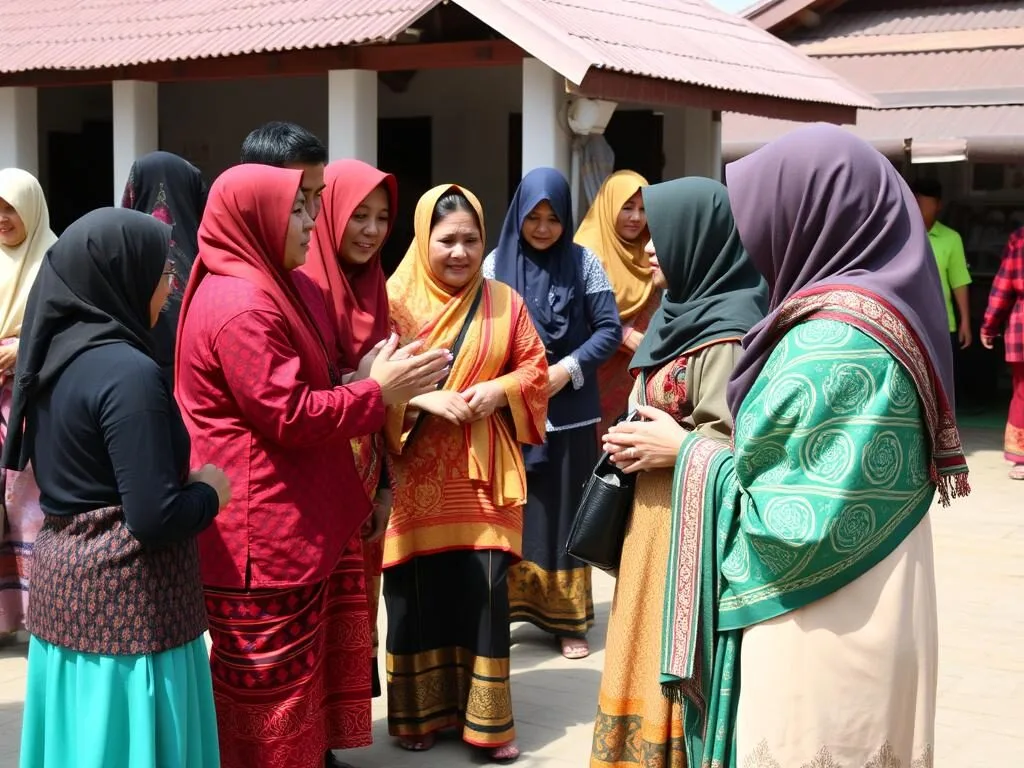
“In Binjai, as in much of Indonesia, relationships are built on mutual respect. Taking time to learn a few basic Indonesian phrases, observing local customs, and approaching interactions with patience and a smile will open many doors.”
Practical Travel Tips
Money Matters
- The currency is the Indonesian Rupiah (IDR)
- ATMs are available in Binjai, but carry some cash for small purchases
- Credit cards are accepted at larger establishments but not widely used
- Inform your bank of your travel plans to avoid card blocks
- Bargaining is common in markets but not in established stores
Communication
- Indonesian (Bahasa Indonesia) is the official language
- English is not widely spoken outside of tourist areas
- Learning a few basic Indonesian phrases is appreciated
- Local SIM cards are inexpensive and provide good coverage
- Binjai’s area code is (+62) 61
Other Essentials
- Electricity: 220V, Type C and F plugs
- Time Zone: Indonesia Western Time (UTC+7)
- Tap water is not potable; stick to bottled water
- Public toilets are limited; use facilities in restaurants and hotels
- Mosquito repellent is recommended year-round
Is Binjai worth visiting if I’m already going to Medan?
Absolutely! While Medan offers more urban attractions, Binjai provides a more authentic look at local life in North Sumatra. Its famous rambutan orchards, traditional markets, and proximity to natural attractions like Bukit Lawang make it a worthwhile addition to your itinerary, especially if you’re interested in experiencing local culture beyond the major tourist centers.
How many days should I spend in Binjai?
Binjai itself can be explored in 1-2 days. However, if you plan to use it as a base for visiting nearby attractions like Bukit Lawang or Gunung Leuser National Park, consider staying 3-4 days. Many travelers combine Binjai with Medan for a comprehensive North Sumatra experience.
When is rambutan season in Binjai?
Rambutan season in Binjai typically runs from November to February, with peak harvest usually occurring in December and January. This is the best time to visit if you want to experience the city’s famous fruit at its freshest and most abundant.
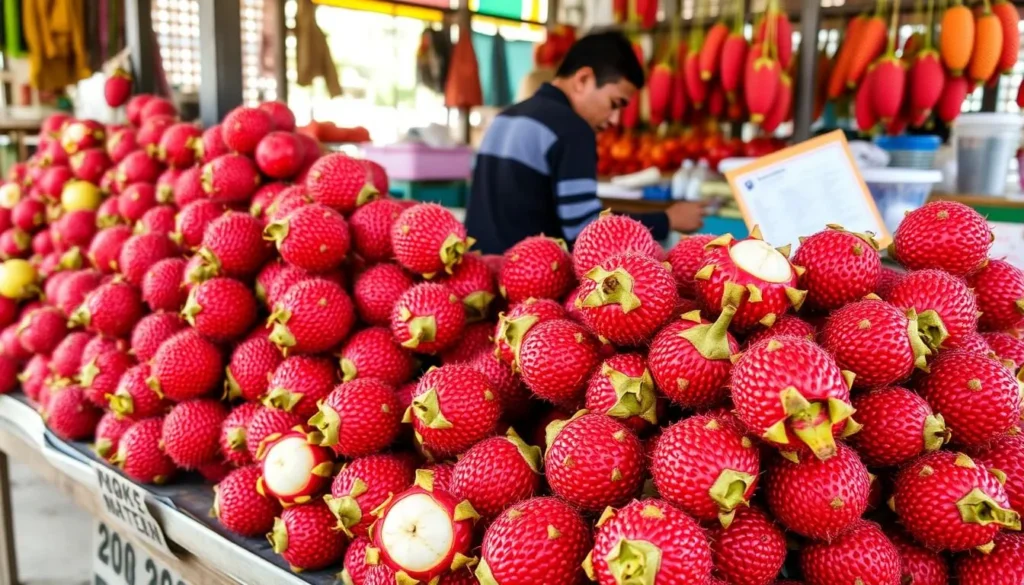
Experience the Authentic Charm of Binjai
Binjai may not be on every traveler’s radar, but that’s precisely what makes it special. This small North Sumatran city offers a genuine glimpse into Indonesian life away from the tourist crowds. From its famous rambutan orchards and diverse culinary scene to its proximity to natural wonders like Bukit Lawang, Binjai rewards curious travelers with authentic experiences and warm hospitality.
Whether you’re stopping by on your way to Lake Toba, using it as a base to explore the region’s natural attractions, or simply looking to experience a different side of Indonesia, Binjai’s multicultural heritage and friendly atmosphere make it a worthwhile addition to your Sumatran adventure.
Ready to Discover Binjai?
Start planning your journey to this hidden gem of North Sumatra
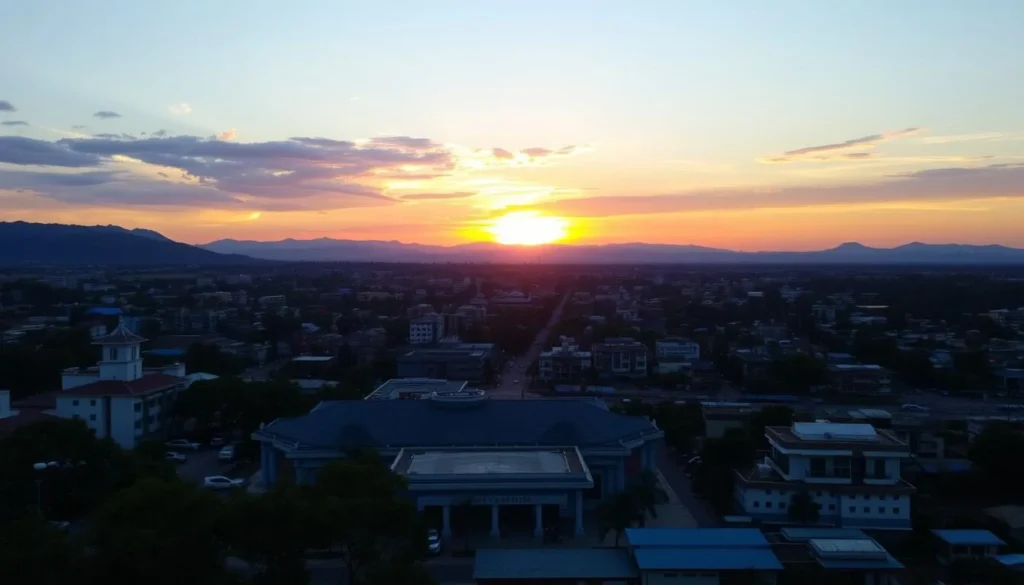
The above is subject to change.
Check back often to TRAVEL.COM for the latest travel tips and deals.
